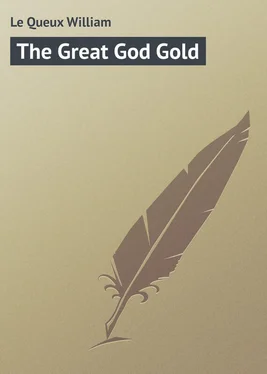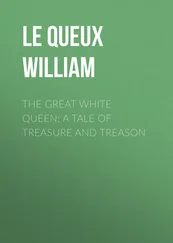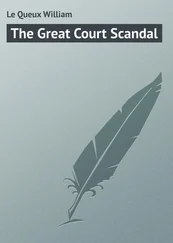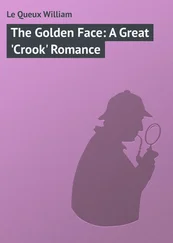William Le Queux - The Great God Gold
Здесь есть возможность читать онлайн «William Le Queux - The Great God Gold» — ознакомительный отрывок электронной книги совершенно бесплатно, а после прочтения отрывка купить полную версию. В некоторых случаях можно слушать аудио, скачать через торрент в формате fb2 и присутствует краткое содержание. Жанр: foreign_prose, на английском языке. Описание произведения, (предисловие) а так же отзывы посетителей доступны на портале библиотеки ЛибКат.
- Название:The Great God Gold
- Автор:
- Жанр:
- Год:неизвестен
- ISBN:нет данных
- Рейтинг книги:5 / 5. Голосов: 1
-
Избранное:Добавить в избранное
- Отзывы:
-
Ваша оценка:
- 100
- 1
- 2
- 3
- 4
- 5
The Great God Gold: краткое содержание, описание и аннотация
Предлагаем к чтению аннотацию, описание, краткое содержание или предисловие (зависит от того, что написал сам автор книги «The Great God Gold»). Если вы не нашли необходимую информацию о книге — напишите в комментариях, мы постараемся отыскать её.
The Great God Gold — читать онлайн ознакомительный отрывок
Ниже представлен текст книги, разбитый по страницам. Система сохранения места последней прочитанной страницы, позволяет с удобством читать онлайн бесплатно книгу «The Great God Gold», без необходимости каждый раз заново искать на чём Вы остановились. Поставьте закладку, и сможете в любой момент перейти на страницу, на которой закончили чтение.
Интервал:
Закладка:
“H’m,” grunted the old man, after a swift glance at it. “A copy, evidently. The Hebrew words are too clumsily written. No scholar wrote them. Probably it’s a translation from German or Danish – I think you said that the man who called himself Blanc, was really a Dane – eh?”
“Yes. He told Diamond that he came from Copenhagen,” Farquhar replied.
But the old man was too deeply engrossed in the study of the neat manuscript. How he wished that the context had been preserved, for here, he recognised, was the key, or rather the commencement of the key to the whole secret. He was now anxious to get rid of Frank Farquhar, and be allowed to pursue his investigations alone. There was certainly much more in it than he had at first suspected.
With such a sensation as that contained in the half-burnt documents to launch upon the world, he would be acclaimed the most prominent scholar of the day. The whole of academic Europe would shower honours upon him.
“What does it mean about the ‘wâw’ sign?” inquired the young man. “Does that convey anything?”
“Nothing,” laughed the Professor with affected indifference. “What can one make out of such silly nonsense? It says, apparently, that in Ezekiel the ‘wâw’ sign appears with great regularity. Well, so it does in all Hebrew texts. The letter ‘a’ appears often in English doesn’t it? Well, so does the Hebrew ‘w’ or ‘v’. Therefore it’s all bunkum – that was my first impression – and I still retain it!”
Gwen looked genuinely disappointed. She had hoped that this wonderful manuscript which had fallen into her lover’s hands would turn out, as he had declared it would, to be of utmost value, both to history and also of financial value to its possessors.
But her father, recognised as one of the first authorities of the day, had decisively condemned it as a clumsy fraud.
“The reference given in the manuscript is, I see, Ezekiel xli. 23,” remarked the girl, and turning over the pages of the Bible which she still held in her hand she exclaimed:
“Here it is. Let me read it: ‘And the temple and the sanctuary had two doors. And the doors had two leaves apiece , two burning leaves; two leaves for the one door, and two for the other door . And there were made on them, on the doors of the temple, cherubims and palm trees, like as were made upon the walls; and there were thick planks upon the face of the porch without. And there were narrow windows and palm trees on the one side and on the other side, on the sides of the porch, and upon the side chambers of the house, and thick planks.’”
“Yes,” remarked the old man. “The first Hebrew word in the manuscript means either ‘palace’ or ‘temple’. That occurs as the third word of the quotation. But there is no mention of ‘cupbearer’. If I recollect aright, there is a mention of the doors of the Temple in the First Book of Kings. I believe it’s in the sixth chapter. Look, dear, and see if you can find it.”
His daughter turned over the leaves quickly, found the chapter he had indicated, and scanned over the verses.
“Ah!” she cried, a moment later. “Yes. You are right, dad. Here it is, beginning at verse 31: ‘And for the entering of the oracle he (Solomon) made doors of olive tree: the lintel and side posts were a fifth part of the wall . The two doors also were of olive tree: and he carved upon them carvings of cherubims and palm trees and open flowers, and overlaid them with gold, and spread gold upon the cherubims, and upon the palm trees. So also made he for the door of the temple posts of olive tree, a fourth part of the wall And the two doors were of fir tree: the two leaves of the one door were folding, and the two leaves of the other door were folding. And he carved thereon cherubims and palm trees and open flowers: and covered them with gold fitted upon the carved work.’”
“I looked up the reference in Ezekiel,” remarked Frank, “but I could not understand it. Perhaps, you, Professor, may be able to throw some light upon it?”
The old man turned to the speaker, and held up his thin, almost waxen hands.
“How can I?” he asked with an air of bewilderment well feigned. “How can I possibly? The latter half of this fragment of scribble is a mere copy of a verse out of the Old Testament, and seems to have nothing whatever to do with the theory – whatever it may be – expounded in the upper part of the page.”
“Then what is your candid opinion, dad?” asked Gwen, placing her hand softly upon her father’s shoulder again as she stood behind him, and at the same time turning her eyes affectionately upon the tall, good-looking, young man at her side.
“My candid opinion, my dear,” grunted the old Professor, “is that it is one of the many extraordinary theories we have had of hare-brained persons who have gained a smattering of Hebrew, and believe themselves to have discovered some very wonderful secret. To put it bluntly, Gwen – the whole thing is bunkum!”
The young man said nothing. His spirits fell. Of course, he had expected the Professor, in the habit of all scholars, to throw cold water upon Doctor Diamond’s suggestion, but he was hardly prepared for such a drastic dismissal of the subject.
“Well,” he exclaimed at last, “I don’t wish you to come to any premature conclusion, Professor. You have really not had sufficient opportunity yet of thoroughly investigating the affair, have you?”
“No. That’s quite true. I – well – I’d like to keep these scraps for a day, or say a couple of days – if I might, my dear Frank. I’ll be most careful of them, I promise you, and they shall not leave my possession. As a matter of fact,” he added, “Ginsberg from Berlin happens to be in London, and I’m extremely anxious to show them to him, and hear his views.”
Frank Farquhar was a smart young man, and in a second realised danger in this.
“I fear, Professor, that I cannot allow you to show them to Professor Ginsberg. I made a promise to Diamond that they should be shown only to yourself.”
“Very well, very well,” laughed the Professor, “if you care to trust them with me till the day after to-morrow I will promise to show them to nobody. I only wish to study the extraordinary statement myself, and consult certain original Hebrew texts.”
At first Frank was reluctant, remembering his promise to Doctor Diamond. But at Gwen’s persuasion he was induced to leave them to be locked up in the old-fashioned oak bureau at the further end of the cosy room. The three then passed into the small drawing-room on the same floor, where Gwen, at her lover’s request, sat at the piano and sang in her sweet contralto several pretty French chansonettes which she had learnt.
Chapter Eight
Presents another Curious Problem
In the solution of a problem such as that placed before Professor Griffin, knowledge meant power.
Though he had successfully concealed his excitement he had, truth to tell, learnt much from the perusal of those charred papers – much that held him in utter amazement. A theory had presented itself of which no one had ever before dreamed.
He had derided the manuscript as a clumsy story by some half-educated person. But, within himself, he knew quite well that the problem had been propounded and the suggestion made by some person equally well-read as himself, some Hebrew scholar of highest attainment, if not of highest standing. Alas, in these days of impudent self-advertisement, it is not the cleverest man who is the most notable, or who looms largest in the public eye. The same rule applies to Professors of Hebrew, as to men in every other walk of life.
Читать дальшеИнтервал:
Закладка:
Похожие книги на «The Great God Gold»
Представляем Вашему вниманию похожие книги на «The Great God Gold» списком для выбора. Мы отобрали схожую по названию и смыслу литературу в надежде предоставить читателям больше вариантов отыскать новые, интересные, ещё непрочитанные произведения.
Обсуждение, отзывы о книге «The Great God Gold» и просто собственные мнения читателей. Оставьте ваши комментарии, напишите, что Вы думаете о произведении, его смысле или главных героях. Укажите что конкретно понравилось, а что нет, и почему Вы так считаете.












